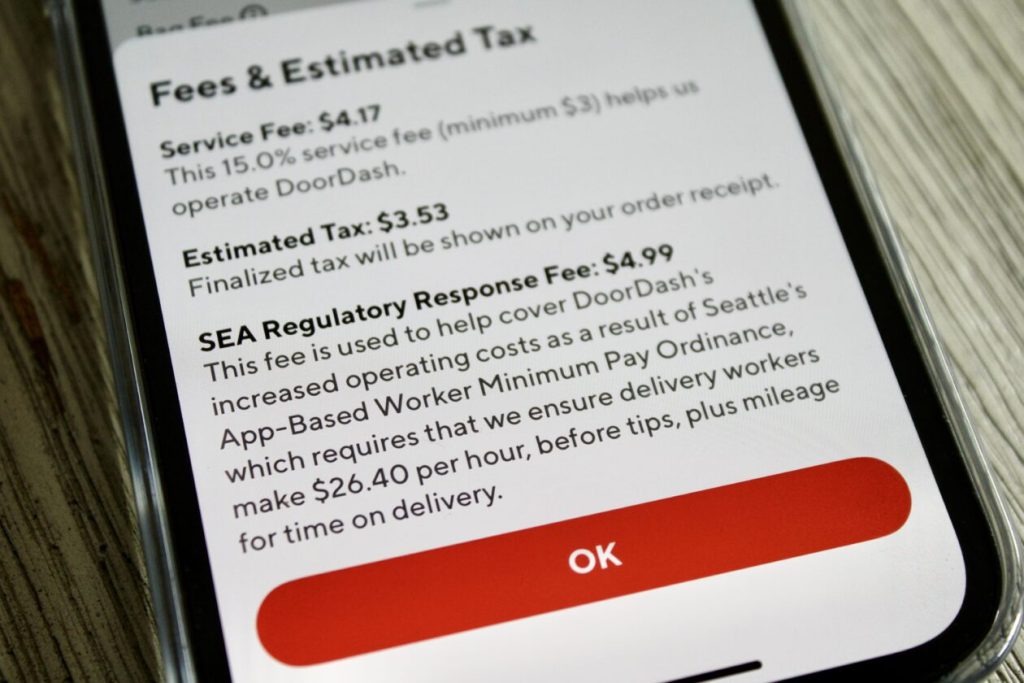A complaint has been filed with the Federal Trade Commission regarding fees added to customer orders by Uber and DoorDash in Seattle following the implementation of a minimum wage law earlier this year. The complaint alleges that the fees are deceptive and misleading, with no reasonable relationship to the companies’ costs. The minimum pay law in Seattle, designed for independent contractors who deliver food, went into effect in January and led to the $5 fee being added to consumer orders by Uber and DoorDash, causing demand to decline. The Seattle City Council will vote on revised legislation that would lower the existing minimum wage standard.
The complaint argues that the $5 fee set by Uber and DoorDash are considered “junk fees” and mislead consumers by implying that the fee is mandated by the City of Seattle, in addition to misrepresenting the total cost of delivery. The companies have been accused of manipulating the marketplace and rapidly increasing costs for each delivery by the same amount, misleading consumers about the total cost of deliveries. DoorDash and Uber Eats describe the fee as a “local operating fee” or “regulatory response fee” aimed at offsetting the increased costs of regulations imposed by the city in response to the minimum wage law.
David Seligman, executive director of Towards Justice, notes that there is nothing illegal about increasing prices in response to changes in labor standards, but the way Uber and DoorDash present the $5 fee to consumers is the issue of concern. The impact on driver pay from the new law appears to be mixed, with some drivers supporting the existing pay standard while others experiencing reduced income due to decreased demand. Seattle and New York City have become testing grounds for the impact of labor standards in the growing food delivery market, with tech companies under scrutiny for their impact on workers and restaurants.
Seattle’s minimum wage legislation is part of unique “PayUp” laws passed in the city, including ordinances related to worker deactivation process and funding for implementation and enforcement. The legislation is part of efforts to ensure fair pay and working conditions for gig workers in the food delivery industry. The FTC declined to comment on the complaint filed against Uber and DoorDash, which alleges that the fees added to customer orders are deceptive and misleading, with no logical relationship to the companies’ costs. The Seattle City Council is set to vote on revised legislation that would adjust the existing minimum wage standard in response to the impact on delivery services and drivers.












